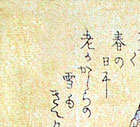 |
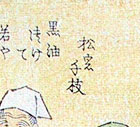 |
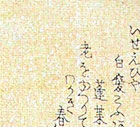 |
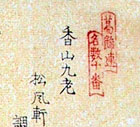 |
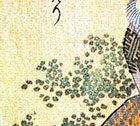 |
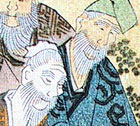 |
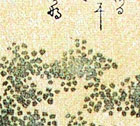 |
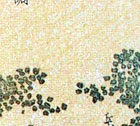 |
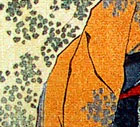 |
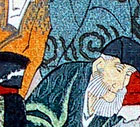 |
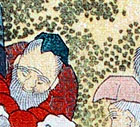 |
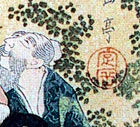 |
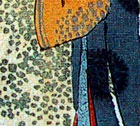 |
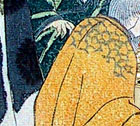 |
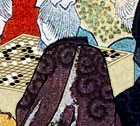 |
 |
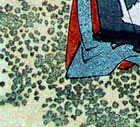 |
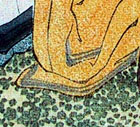 |
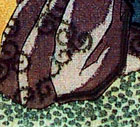 |
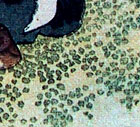 |
|
According to the Tang Shu, and official history of the Tang dynasty,
the famous poet Bai Juyi (722-846) and eight of his friends often met at his
house on Fragrant Mountain (Xiang Shan). The 9 elders are depicted here playing
a game of Go in this surimono print by Yashima Gakutei (1786-1868, artist's
seal Sadaoka). The first poem in the upper right by, Shofuken Shirabe reads: shiraga kobu aru horai ni oi o yuzurite wakaki haru kana The crayfish and the 'white haired' kelp (kobu) turn the Island of Horai over to the elderly this still young spring. The 'Ise ebi' is a crayfish native to Japan and 'kobu' is a type of kelp. The poet calls it 'white haired', meaning it is covered with salt, but it also refers to the white hair of the elders, the inhabitants of the mountainous isles of Horai (Penglai in Chinese), the fabled home of the immortals. The second poem in the upper left, by Shoso Chieda reads: tsukete wakayagu haru no hi ni oi ga kashira no yuki mo kiekeri Because of black hair oil used to make them look younger, in the spring sun the snow on the heads of the old men has disappeared. | ||
The IGS Art Gallery (Chrysanthemum) I G S - a d m i n i s t r a t i o n |